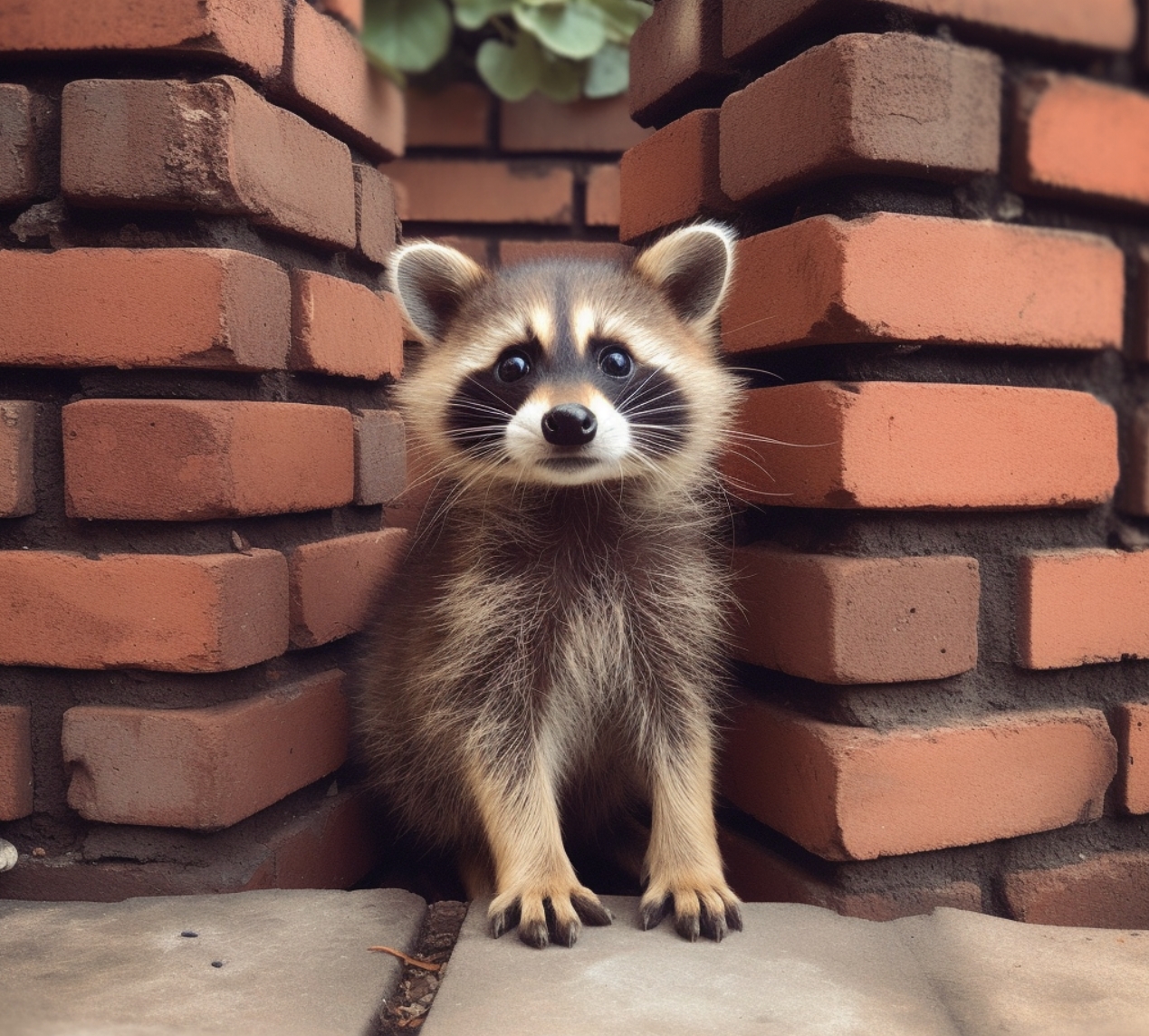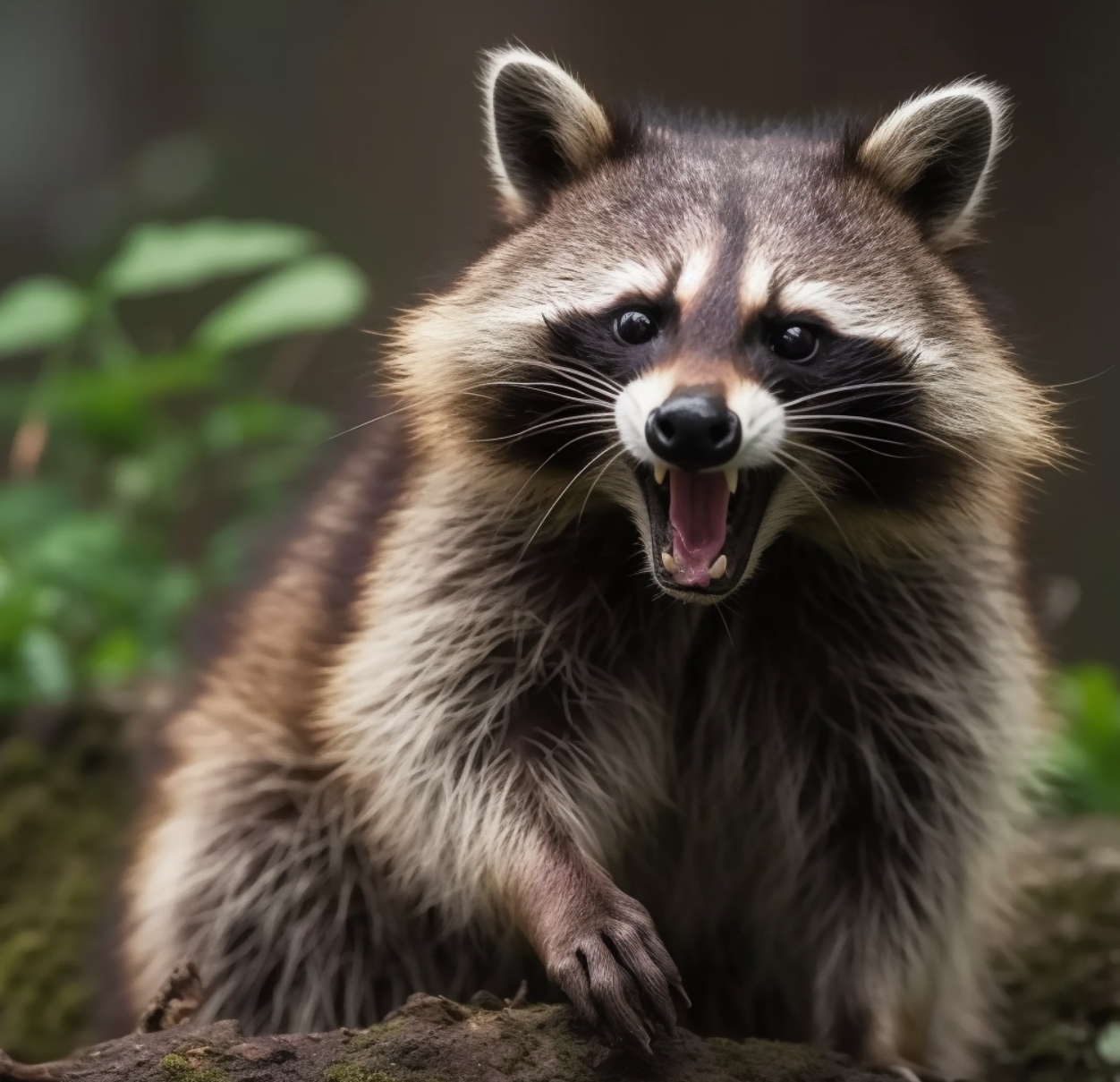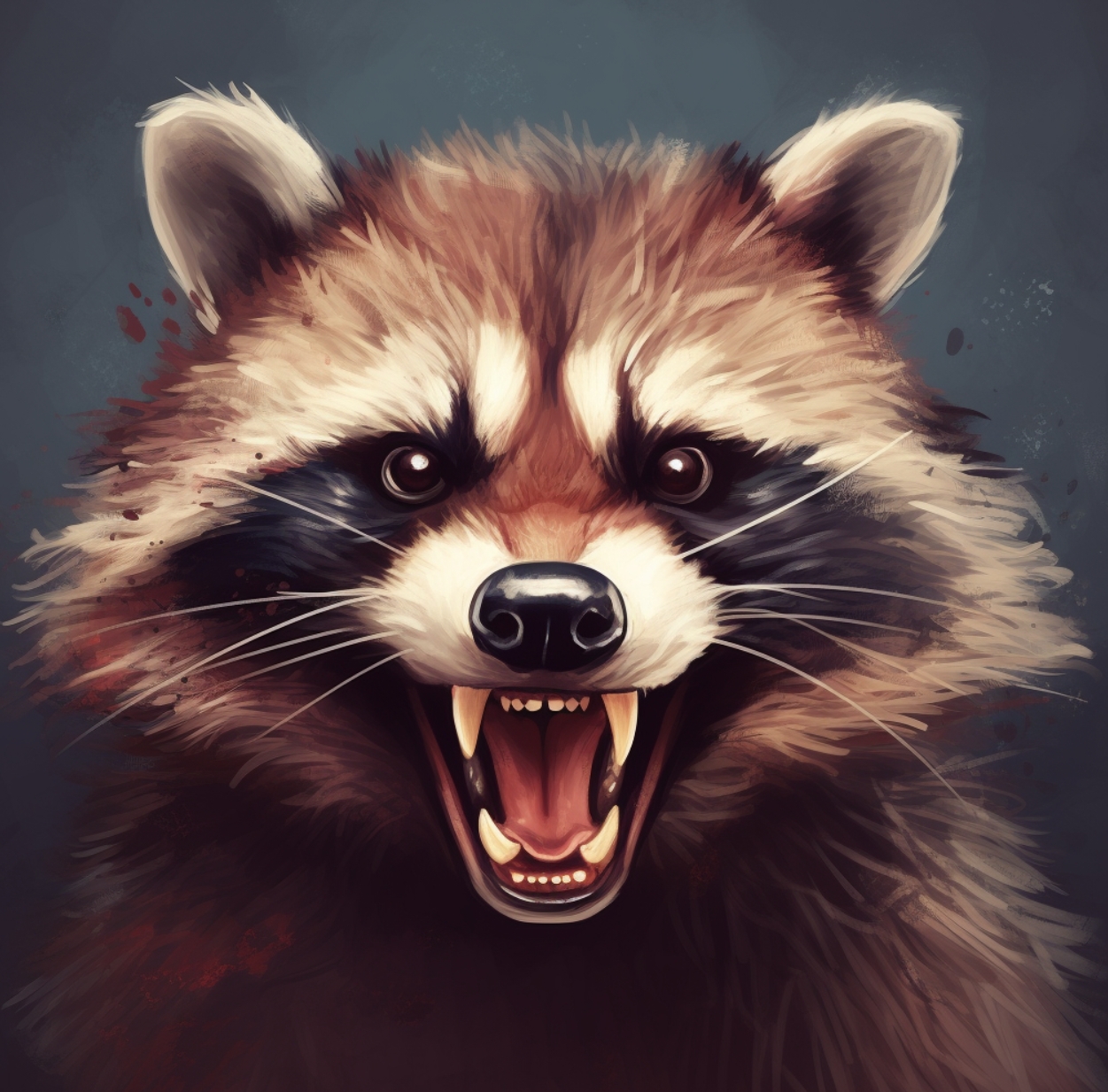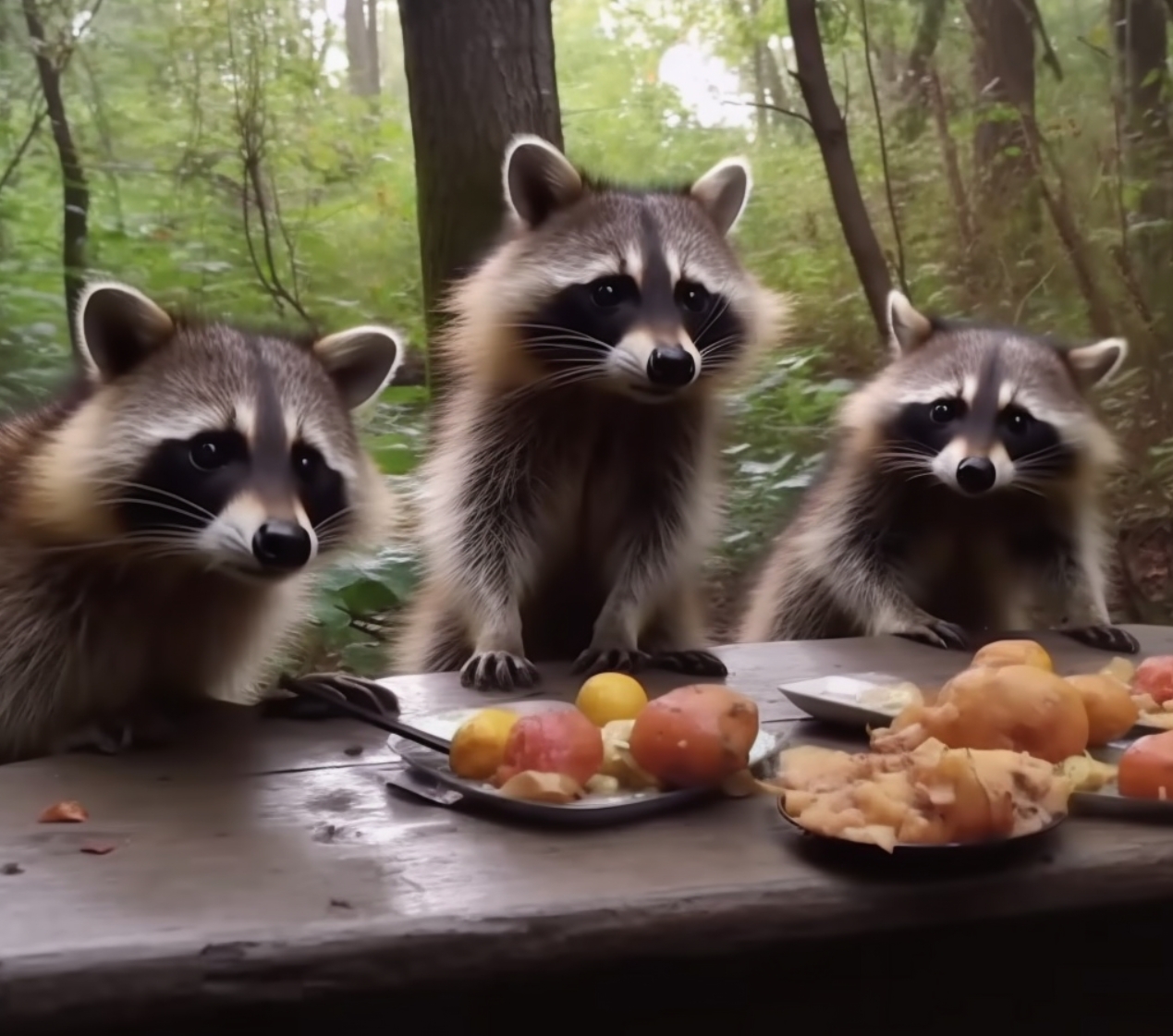Are baby raccoons dangerous? It’s a question that has puzzled many homeowners and animal enthusiasts alike. Baby raccoons, or “kits,” are undeniably cute and can evoke feelings of compassion, but could they pose a threat to you, your family, or your pets? This article will dive deep into the world of baby raccoons, providing you with a step-by-step guide on understanding their potential dangers, how to coexist with them, and what precautions to take.
The Intriguing Life of Raccoons
Contents
Raccoons are fascinating creatures, known for their mask-like markings, dexterous paws, and curious nature. They are not rodents but are closely related to bears. They are incredibly adaptable, able to swim, climb, and even use their opposable thumbs to open containers and doors.
One of the raccoons’ most well-known habits is their affinity for trash. Raccoons are omnivorous and will eat almost anything, which often leads them to scavenge in garbage cans for food. However, this behavior can bring them into conflict with humans, especially when it comes to baby raccoons.
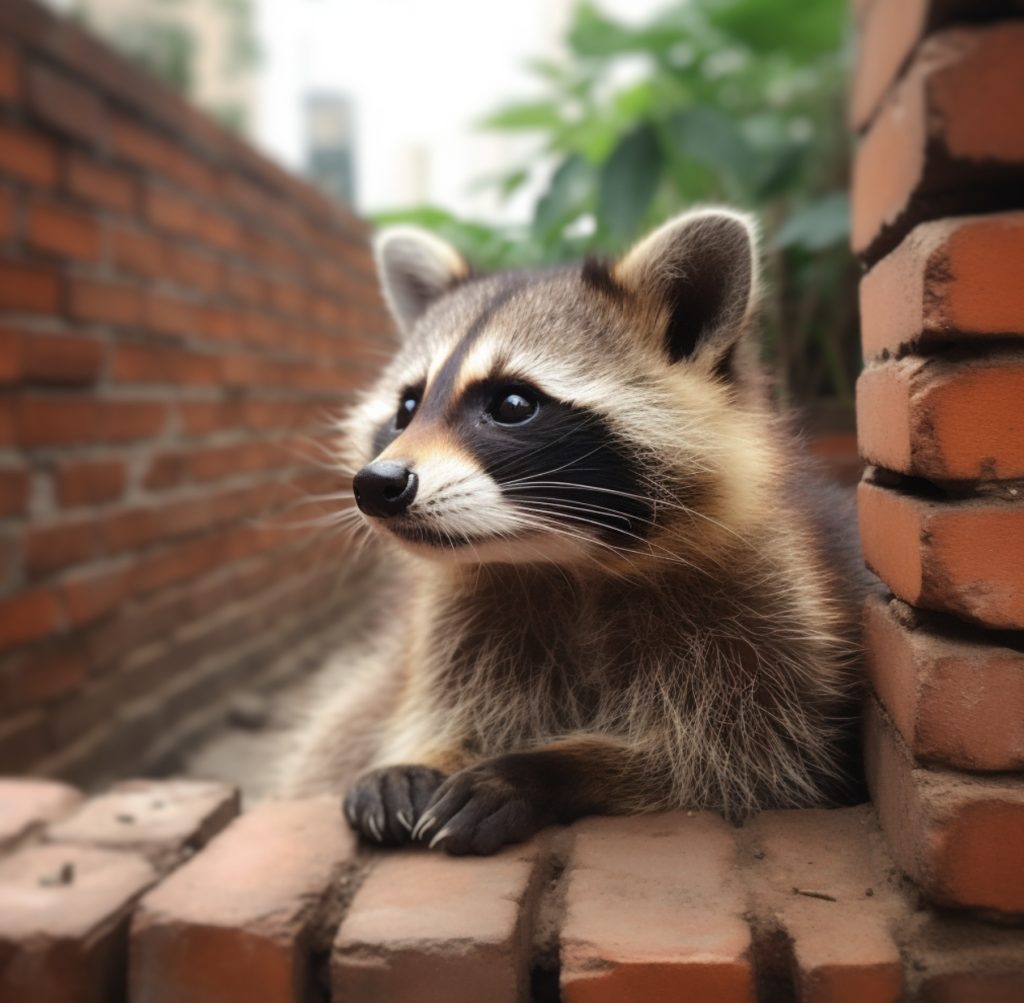
Baby Raccoons: Adorable but Potentially Dangerous
Before we can answer the question, “are baby raccoons dangerous,” it’s essential to understand their development. Baby raccoons are born in the spring, typically in litters of three to five. They are initially blind, deaf, and entirely dependent on their mothers for care. By eight weeks old, they begin to venture out of their dens and learn how to forage.
While baby raccoons may appear harmless, there are some inherent risks associated with them:
Rabies and Other Health Risks
One of the most significant concerns with raccoons, including baby raccoons, is the potential for them to carry rabies. Rabies is a viral disease that affects the central nervous system and can be transmitted through the saliva of an infected animal, usually via a bite. Although the percentage of raccoons with rabies is relatively low, it is still essential to be cautious around them, as the disease is fatal to humans if left untreated.
Baby raccoons can also carry other diseases and parasites, such as roundworms, which can be transmitted to humans and pets through contact with their feces. It’s crucial to recognize the signs of raccoon feces and know how to dispose of it properly to reduce the risk of contamination.
Aggressive Behavior
While baby raccoons are generally less aggressive than adults, they can become aggressive if they feel threatened or cornered. It’s essential to keep a safe distance from them and avoid any attempts to touch or handle them.
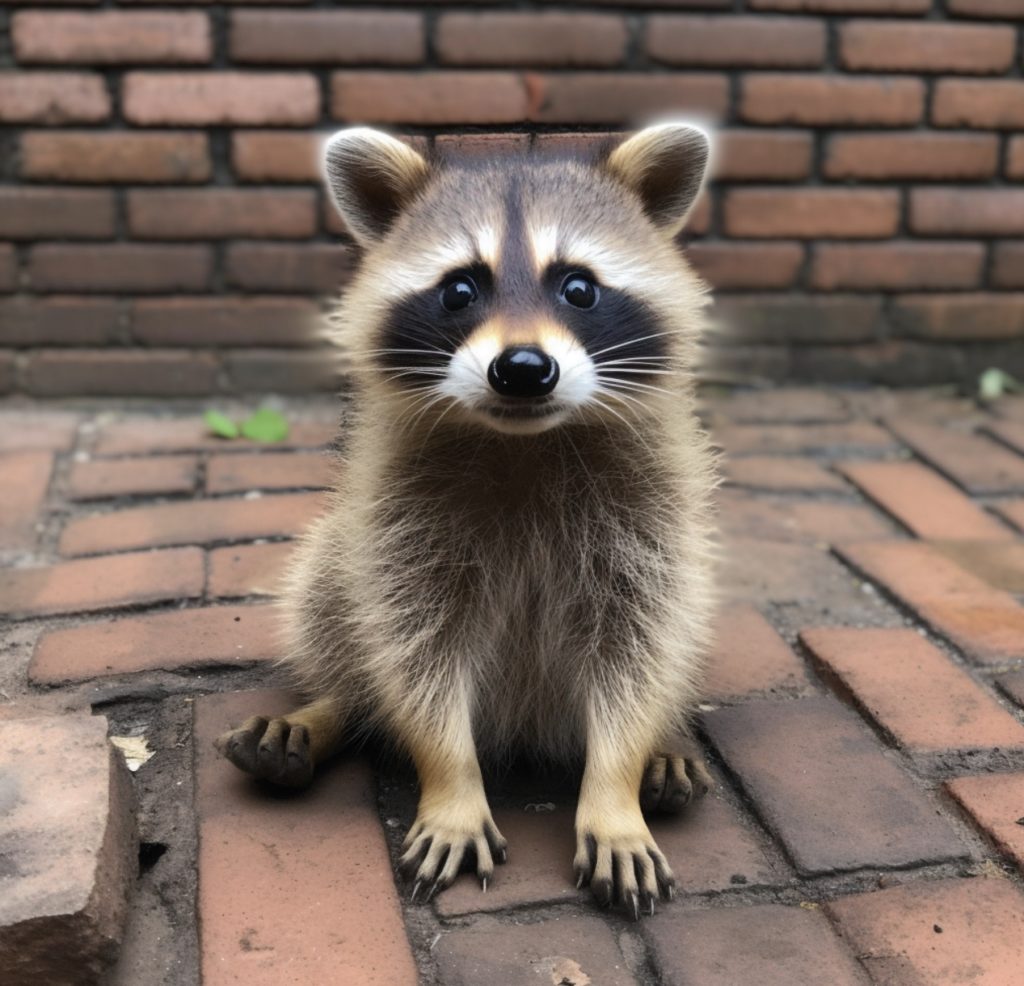
How to Coexist wih Baby Raccoons
As baby raccoons learn to navigate the world around them, they may inadvertently find their way into your backyard or even your home. Here are some tips on how to coexist peacefully with these curious creatures:
Keep Your Property Clean and Secure
One of the best ways to discourage raccoons from frequenting your property is by removing their primary source of attraction: food. Make sure to secure your garbage cans with tight-fitting lids or use raccoon-proof locks. Also, avoid leaving pet food outside, as this can attract raccoons and other wildlife.
Seal Possible Entry Points
Raccoons are notorious for finding creative ways to enter homes in search of food or shelter. Inspect your house for any potential entry points, such as broken vents, gaps in the roof, or damaged siding, and seal them up to prevent raccoons from entering.
Keep a Safe Distance
While it may be tempting to approach baby raccoons or even attempt to feed them, it’s essential to maintain a safe distance. Human intervention can disrupt their natural development and increase the risk of injury or disease transmission.
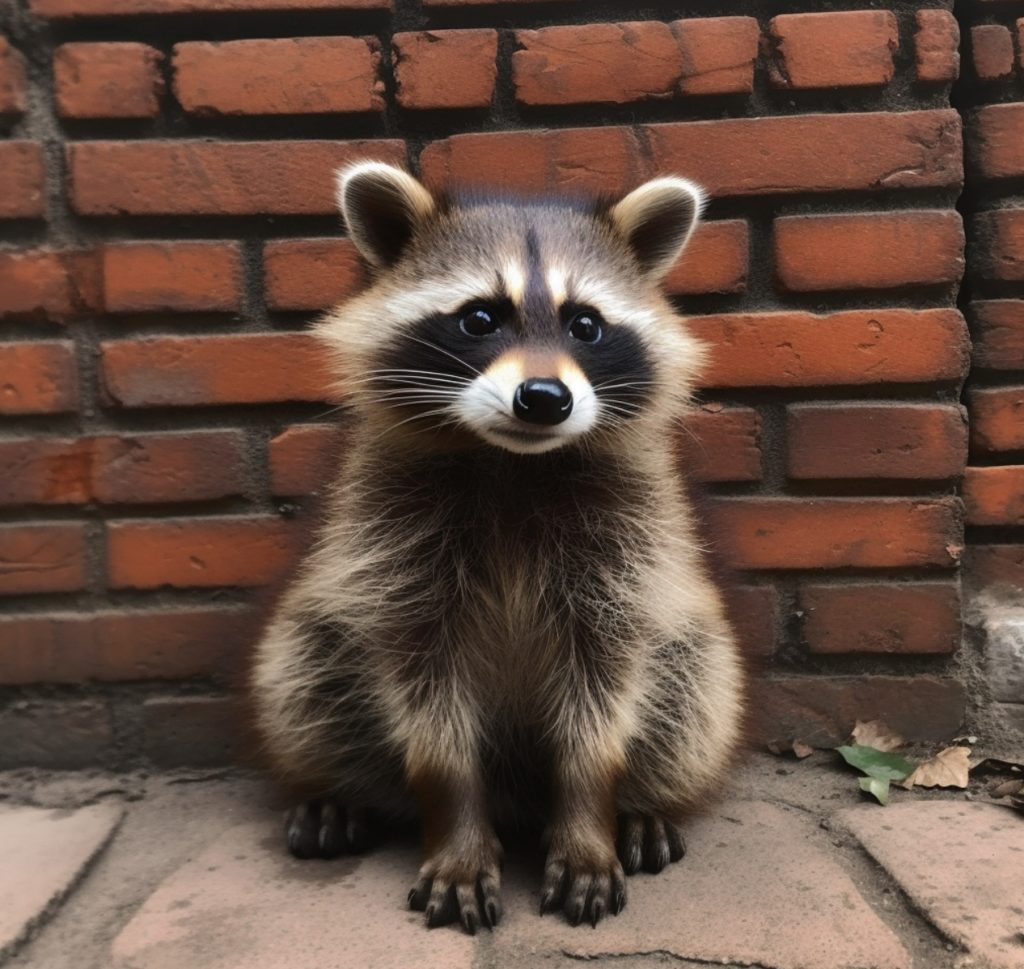
What to Do If You Encounter Baby Raccoons
If you come across baby raccoons on your property or in a public area, it’s crucial to know the appropriate steps to take:
Observe from a Distance
If the baby raccoons appear healthy and are not in immediate danger, simply observe them from a safe distance. Remember that their mother is likely nearby and will return to care for them.
Contact a Wildlife Professional
If you believe the baby raccoons are orphaned or injured, contact a local wildlife rehabilitation center or animal control agency for assistance. They have the knowledge and resources necessary to care for the animals and ensure their safe return to the wild.
Employ Humane Deterrents
If raccoons are causing problems on your property, consider using humane deterrents to encourage them to move on. Devices such as motion-activated sprinklers or lights can be effective at scaring raccoons away without causing harm. For more information on how to scare away raccoons at night, check out this guide.
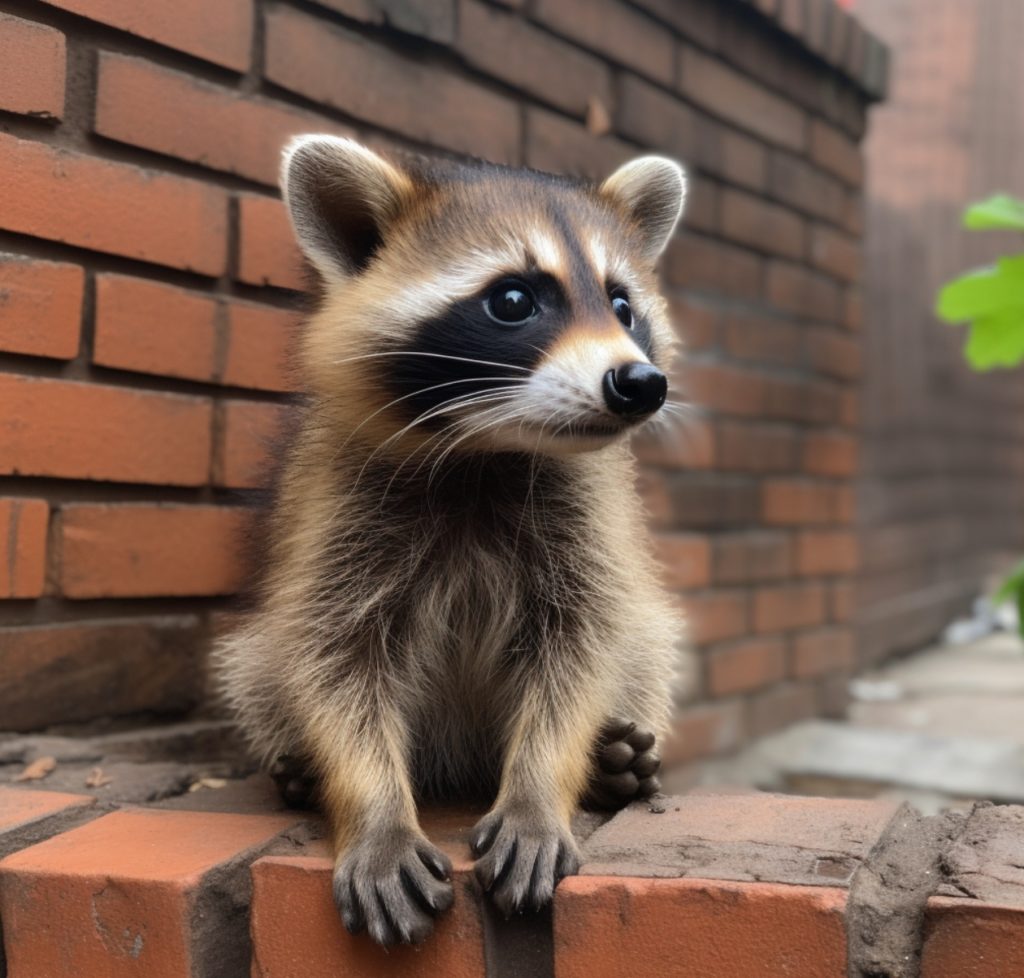
The Dreamlight Valley: A Safe Haven for Raccoons
For those interested in experiencing raccoons in a more controlled environment, consider visiting Dreamlight Valley, a wildlife sanctuary dedicated to the preservation and appreciation of raccoons. Here, visitors can learn about raccoon behavior, ecology, and even how to feed raccoons safely.
In Conclusion
So, are baby raccoons dangerous? While they may pose some risks, such as carrying diseases like rabies or potentially becoming aggressive when threatened, these risks can be mitigated through proper precautions and respect for their natural behaviors.
F.A.Q. about Baby Raccoons and Their Potential Dangers
To help you better understand baby raccoons and the risks they may pose, we’ve compiled a list of frequently asked questions and their answers.
1. Can baby raccoons carry rabies?
Yes, baby raccoons can carry rabies, just like adult raccoons. Although the percentage of raccoons infected with rabies is relatively low, it’s still essential to exercise caution around them, as rabies can be fatal to humans if left untreated.
2. What should I do if I find baby raccoons in my yard?
If you find baby raccoons in your yard and they appear healthy, it’s best to leave them alone and observe from a safe distance. Their mother is likely nearby and will return to care for them. If you suspect the baby raccoons are injured or orphaned, contact a local wildlife rehabilitation center or animal control agency for assistance.
3. How can I discourage raccoons from coming onto my property?
To discourage raccoons from visiting your property, remove potential food sources by securing garbage cans with tight-fitting lids, keeping pet food indoors, and cleaning up fallen fruit or nuts from trees. Additionally, seal any potential entry points to your home, such as broken vents or gaps in your roof.
4. Is it safe to feed baby raccoons?
Feeding baby raccoons is not recommended, as it can disrupt their natural development and increase their dependency on humans. Feeding raccoons can also increase the risk of disease transmission and create a situation where raccoons become a nuisance or threat to humans and pets.
5. How can I tell the age of a baby raccoon?
Determining the age of a baby raccoon can be challenging, but there are some general indicators. At birth, baby raccoons are blind, deaf, and entirely dependent on their mothers. By eight weeks old, they begin to venture out of their dens and learn how to forage. For more information on how to tell the age of a raccoon, check out this resource.
6. Can baby raccoons be domesticated?
Although baby raccoons may appear cute and cuddly, they are wild animals and should not be domesticated. Raccoons have complex physical, social, and emotional needs that cannot be met in a domestic environment. Additionally, it’s illegal to keep raccoons as pets in many states.
